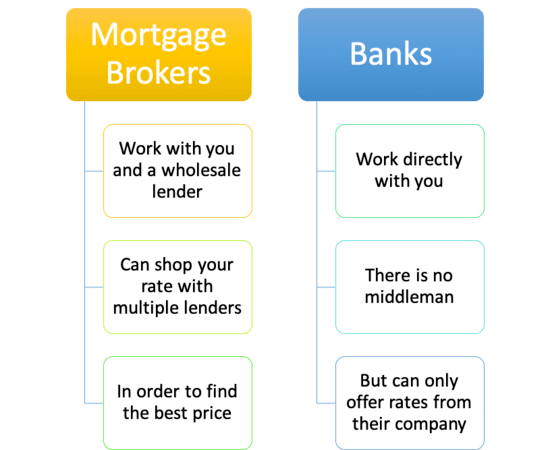Jumbo Loan: The Most Effective Funding Alternative for High-Priced Homes
Jumbo Loan: The Most Effective Funding Alternative for High-Priced Homes
Blog Article
Recognizing What a Jumbo Car Loan Entails and Exactly How It Varies From Standard Finances
Browsing the ins and outs of big loans exposes a funding choice customized for those venturing into high-value property, typically exceeding the restrictions set by the Federal Housing Money Company. On the other hand, traditional loans are usually extra easily accessible, taking advantage of backing by entities such as Fannie Mae and Freddie Mac. The significant danger related to big car loans demands extra rigorous certification requirements, consisting of greater credit history and substantial down repayments. As these two car loan kinds deal with varying financial landscapes, recognizing their subtleties is important for making educated decisions in the intricate world of genuine estate financing. Exactly how do you figure out which path best fits your economic method?
Interpretation of Jumbo Finances
Jumbo car loans are a sort of home mortgage that surpass the adhering funding restrictions set by the Federal Real Estate Financing Company (FHFA) These loans satisfy borrowers who require to finance residential or commercial properties that are more costly than what standard loan limits enable. The FHFA develops annual adjusting finance limitations, and any kind of lending surpassing these thresholds is categorized as a jumbo funding.
Usually, jumbo car loans are utilized in high-cost property markets where home rates significantly surpass nationwide averages, such as in urbane locations or deluxe real estate markets. As these financings are not qualified for purchase by Fannie Mae or Freddie Mac, they carry integral risks for loan providers because of their bigger dimension and non-conformity (jumbo loan). Loan providers typically impose a lot more stringent certification criteria for jumbo lendings than common conforming financings.
Debtors seeking jumbo lendings must typically show a strong monetary profile, consisting of a greater credit rating, robust revenue confirmation, and significant deposit, frequently 20% or even more. Additionally, lenders may call for more considerable paperwork to evaluate the borrower's capability to take care of larger monthly payments. Recognizing the details characteristics of big financings is important for potential consumers browsing this section of the home mortgage market.
Standard Car Loans Overview
While big fundings satisfy high-value building funding, traditional lendings represent the even more usual home loan choice in the real estate market. These loans are not guaranteed or guaranteed by any federal government entity, such as the Federal Housing Administration (FHA) or the Department of Veterans Matters (VA) Rather, they are backed by exclusive loan providers and adhere to guidelines set by government-sponsored enterprises (GSEs) like Fannie Mae and Freddie Mac.
Traditional car loans are usually offered with fixed or adjustable rates of interest and vary in regards to period, typically extending 15 to thirty years. Consumers commonly prefer conventional finances for their predictable month-to-month repayments, which can assist in long-lasting monetary preparation. Additionally, they are offered for key houses, 2nd homes, and investment residential properties, using adaptability to meet diverse borrower needs.

Secret Distinctions Between Finances
At the leading edge of this decision-making procedure are standard financings and big fundings, each possessing unique features and serving various consumer demands. Jumbo finances surpass the adhering funding limits set by the Federal Housing Money Firm (FHFA), which vary by area.

Additionally, the deposit demands can vary considerably. Big financings usually need larger deposits, occasionally exceeding 20%, to mitigate risk. Conventional car loans, on the other hand, may permit reduced deposits, with some programs approving as low as 3% for qualified purchasers.
Certification Demands
Safeguarding a big car loan includes satisfying a lot more stringent credentials demands compared to standard finances, mirroring the raised risk to lenders. These car loans, which go beyond the adhering financing limits established by the Federal Housing Financing Agency (FHFA), are not qualified for purchase by Freddie Mac or Fannie Mae, consequently exposing lenders to higher economic danger - jumbo loan. Therefore, customers have to show a high creditworthiness and monetary security
A durable credit report, usually 700 or higher, is crucial for approval. Lenders likewise expect a lower debt-to-income (DTI) proportion, typically not exceeding 43%, making sure that consumers can handle considerable month-to-month payments together with other financial commitments. A substantial money book is typically called for, generally amounting to 6 months of home loan settlements, to comfort lenders of the debtor's financial durability.
Down payment expectations are additionally elevated, regularly starting at 20% or even more of the residential property's value. While this is a guard for loan providers, it requires substantial ahead of time resources from consumers.
Selecting the Right Car Loan
When choosing the most suitable car loan option,Browsing look at here now the intricacy of jumbo loans calls for careful factor to consider. With the broader variety of options offered to those seeking big car loans, the decision-making procedure must include a detailed evaluation of one's financial profile and lasting goals. Unlike read here standard finances, big fundings frequently feature stricter demands and differed rates of interest, which demand extensive study and a clear understanding of one's financial standing.
When selecting in between various big finance offerings, it is crucial to evaluate the car loan terms, consisting of rate of interest, payment routines, and associated charges. Debtors must contrast the prices given by various lenders to ensure they secure the most beneficial terms. Furthermore, recognizing the effects of fixed versus variable-rate mortgages (ARMs) is vital, as each choice offers unique benefits and dangers depending on market problems and individual economic approaches.
Involving with an economic consultant or mortgage broker can provide valuable understandings customized to individual situations. These specialists can aid in browsing the nuances of jumbo loans, making certain that consumers are educated and equipped to pick a finance that lines up with their financial goals, inevitably helping with a smoother home-buying process.
Final Thought
In summary, jumbo fundings act as a monetary instrument for obtaining high-value properties, necessitating stringent qualification needs and greater rate of interest because of the elevated risk for lenders. Unlike traditional car loans, which satisfy FHFA restrictions and may get support from Fannie Mae or Freddie Mac, big loans require a minimum credit report of 700 and substantial down repayments. Comprehending these distinctions is vital for borrowers in high-cost actual estate markets to establish one of the most ideal lending option for their needs.
The FHFA develops annual conforming loan limitations, and any lending going beyond these limits is classified as a big loan.
At the forefront of this decision-making procedure are conventional fundings and big finances, each possessing distinctive characteristics and offering different customer requirements.Protecting a jumbo funding includes satisfying a lot more rigid find certification demands compared to conventional loans, showing the raised risk to lending institutions. Unlike standard car loans, big loans often come with stricter requirements and differed rate of interest prices, which require comprehensive research study and a clear understanding of one's economic standing.
Unlike standard lendings, which adhere to FHFA limits and might receive backing from Fannie Mae or Freddie Mac, jumbo loans require a minimal credit report rating of 700 and substantial down repayments.
Report this page